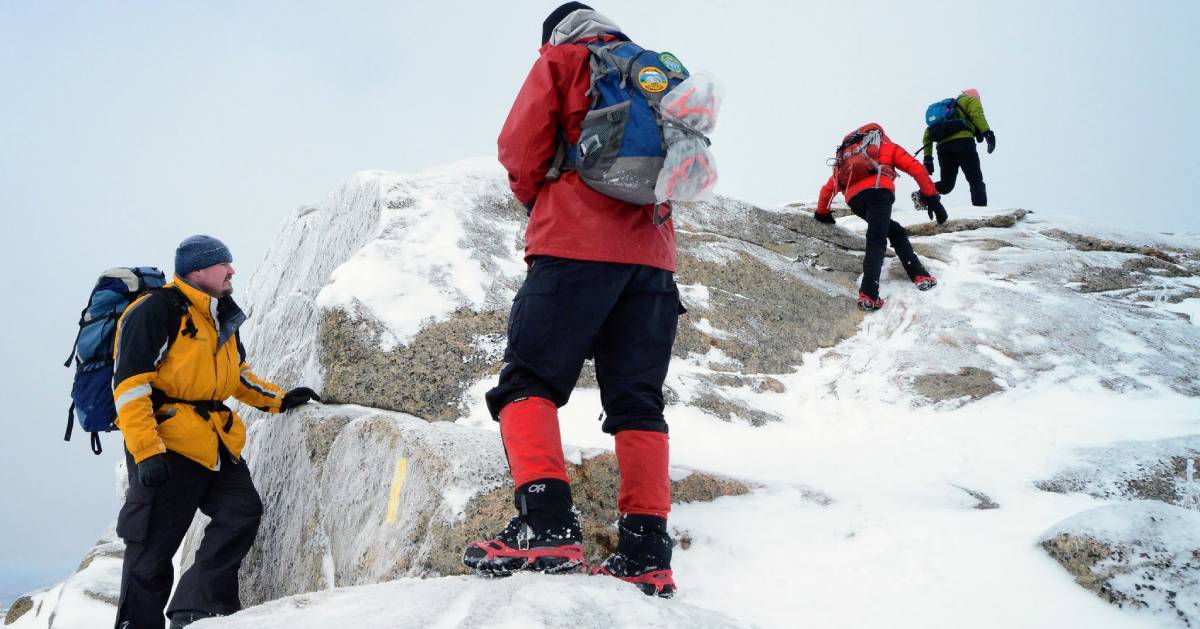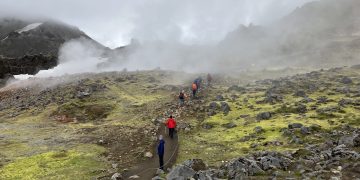Hiking is often seen as one of the most liberating outdoor activities, offering adventurers a chance to connect with nature while challenging their physical endurance. Yet, as any seasoned hiker will tell you, the fine line between confidence and overconfidence can sometimes be the difference between an enjoyable journey and a dangerous disaster. Overestimating your trail ability, while tempting, can lead to a host of unfortunate outcomes that may not only endanger your safety but also dampen your love for the great outdoors. But what exactly happens when we misjudge our hiking capabilities? Let’s explore.
The Allure of Challenging Trails
Whether you’ve been hiking for years or are just beginning your journey into the wilderness, there’s always the temptation to push your limits. That rugged mountain peak that looms in the distance, or the deep, untamed forest trail that promises adventure, may call your name. But it’s easy to get caught up in the allure of more difficult trails and overestimate how prepared you are to take them on.
Overestimating your trail ability often stems from an inflated sense of your endurance, experience, or skills. Maybe you’ve completed a few moderate trails without issue and now feel ready to conquer more advanced terrain. But it’s crucial to understand that difficult trails come with unique challenges, including steep inclines, unpredictable weather, technical routes, and long distances.
The decision to take on a challenging trail without proper preparation can quickly turn a dream adventure into a nightmare.
1. Physical Strain and Exhaustion
One of the most immediate consequences of overestimating your trail ability is physical exhaustion. Hiking, especially on difficult trails, is demanding on your body. Steep ascents, uneven terrain, and long durations of walking put a strain on your muscles, joints, and cardiovascular system.
If you aren’t adequately prepared, you risk pushing your body beyond its limits. This can lead to muscle fatigue, dehydration, or even more serious issues like heatstroke. A hiker who misjudges their capabilities might start with enthusiasm but soon find themselves struggling to take even a few steps, overwhelmed by physical exhaustion.

Additionally, exhaustion can impair decision-making, making you more prone to making poor choices, such as overestimating how far you can push before needing rest or failing to recognize signs of dehydration or injury.
2. Increased Risk of Injury
Injuries are a common consequence of overestimating trail ability. When you push yourself too hard on a trail that’s beyond your capacity, you’re more likely to lose focus, misstep, or become careless. The combination of fatigue, overconfidence, and challenging terrain increases the risk of falls, sprains, and strains.
For instance, hiking on a rocky, uneven trail may seem manageable when you’re fresh, but as you fatigue, your balance and coordination may begin to suffer. What seemed like a minor obstacle at the start of the hike can suddenly become hazardous. Common injuries like twisted ankles, sprained knees, or even fractures are not uncommon when hikers push themselves too far, too fast.
The real danger, however, is when injuries occur in remote areas where access to medical assistance is limited. A sprained ankle or twisted knee could be disastrous, turning a simple hike into a life-threatening situation.
3. Poor Decision-Making and Reduced Judgment
When you overestimate your abilities, your judgment is often clouded by optimism or adrenaline. A seasoned hiker who knows their limits may take the time to assess weather conditions, trail markers, and energy levels, but a hiker who is overconfident might press forward without considering these factors.
One of the biggest mistakes is continuing on a trail even when it’s becoming clear that the situation is beyond your control. You might ignore signs of bad weather, dismiss the need for rest, or skip vital safety precautions such as checking your gear. Overestimating your abilities can also cause you to ignore your body’s warning signs, like muscle pain, dehydration, or fatigue.
This poor decision-making process can lead to more significant risks, including becoming lost, hiking in dangerous weather conditions, or getting stuck on a trail when the sun sets.
4. Mental Stress and Anxiety
The mental toll of overestimating your trail ability can be just as significant as the physical strain. The fear of being in over your head, the stress of struggling to finish the hike, or the anxiety of being unable to turn back can turn a joyful outdoor experience into an overwhelming challenge.
When hikers overestimate their abilities, they often enter a mental state where they feel obligated to complete the hike, despite the rising difficulties. This mindset can cause unnecessary stress and anxiety. Anxiety can cloud your judgment even further, causing you to make snap decisions, like rushing or attempting to power through when it’s better to rest.
When faced with unexpected difficulties, the added pressure can affect your ability to think clearly. The more anxious you become, the more your physical and mental energy depletes, accelerating the chances of a negative outcome.
5. Environmental Hazards Become More Dangerous
As you tackle tougher trails without fully understanding your limitations, you’ll be exposing yourself to environmental risks that might otherwise be manageable. More advanced trails often involve unpredictable elements, such as:

- Weather Changes: Rapid shifts in temperature, rain, or snow can quickly alter the trail conditions, making it dangerous to continue. Those who overestimate their ability might ignore weather warnings, leading to hypothermia or dehydration.
- Wildlife: Advanced trails may take you through areas with wildlife encounters, such as bears or snakes. While most animals are not aggressive, overestimating your skill and underestimating the importance of preparedness can make a dangerous encounter much worse.
- Unmarked Terrain: When you venture off marked trails, you risk getting lost in the wilderness. Overestimating your skills at navigation can result in becoming disoriented, which can lead to hours or even days of wandering, especially if you’re not prepared with a map, compass, or GPS.
6. Limited Enjoyment and Reduced Motivation
What should be a refreshing experience in nature can quickly turn sour when you push yourself too hard. When you overestimate your ability, the hike may stop being about enjoyment and become an ordeal. Constant exhaustion, pain, and fear can strip you of the enjoyment that hiking is meant to offer.
Moreover, the stress and frustration associated with completing a difficult trail might lead to negative feelings about hiking in general. You might feel disheartened and demotivated, even after finishing the trail, which could cause you to avoid hiking in the future.
In the worst-case scenario, such experiences can even foster an unhealthy relationship with nature, one that is defined by fear or negative associations, rather than a sense of adventure.
How to Avoid Overestimating Your Trail Ability
While overestimating your abilities is a common mistake, there are ways to mitigate it and ensure you can continue to enjoy hiking safely.
- Know Your Limits: Be honest with yourself about your current physical and mental condition. Don’t let enthusiasm outweigh practicality. Start with moderate trails and work your way up.
- Prepare for the Unexpected: Always plan ahead. Research the trail’s difficulty level, expected weather, and potential hazards. Pack appropriately and carry emergency supplies, including a first-aid kit, extra water, and food.
- Train Your Body: Hiking is a full-body workout. Regular training, such as endurance exercises, weight training, and flexibility routines, will help prepare your body for more challenging terrain.
- Listen to Your Body: If you start to feel unwell, tired, or in pain, don’t push through. Take breaks, hydrate, and adjust your pace. If the trail becomes too difficult, don’t be afraid to turn back.
- Stay Humble: Confidence is key, but overconfidence can be dangerous. Respect the trail, respect your limits, and always prioritize safety over ambition.























